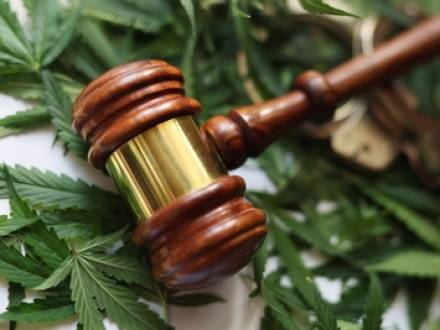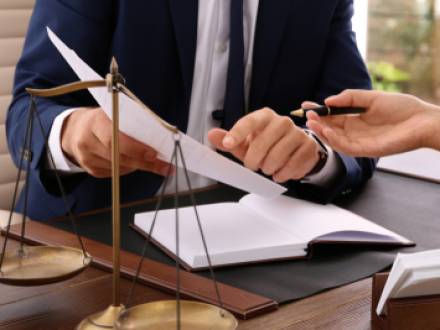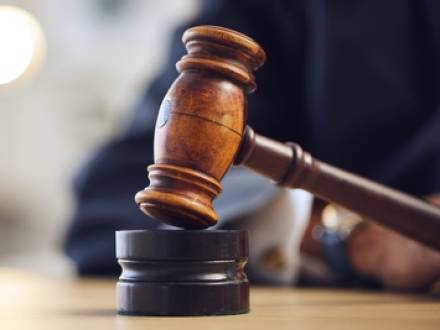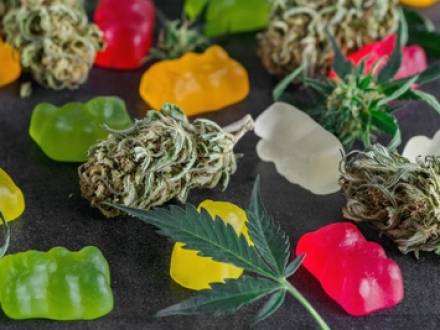2591 Dallas Parkway, Suite 207A, Frisco, TX 75034
Free Consultations
469-333-3333
 |
DO I HAVE TO GO TO TRIAL IN TEXAS? |
Recent Blog Posts
How Should I Respond to a DWI Stop and Arrest?
 If you have never run afoul of law enforcement before, getting pulled over on suspicion of driving while intoxicated (DWI) can be an incredibly stressful experience. Unfortunately, this is where many people panic and end up making simple mistakes that hurt their own cases.
If you have never run afoul of law enforcement before, getting pulled over on suspicion of driving while intoxicated (DWI) can be an incredibly stressful experience. Unfortunately, this is where many people panic and end up making simple mistakes that hurt their own cases.
The best way to avoid a DWI charge is to avoid drinking and driving. However, if you are stopped by a police officer on suspicion of DWI, you can take steps to protect yourself before you get in contact with a Texas DWI attorney. At Law Offices of Biederman & Burleson P.L.L.C., we have handled hundreds of DWI cases, and when you work with our firm, we will strategize with you to determine the best course of action.
Know What to Say (And What Not to)
After you are pulled over, you should brace for a series of questions from the police officer. Questions like "Do you know why I pulled you over?" are intended to get you to incriminate yourself, supplying evidence to the prosecution. Whenever possible, you can give noncommittal answers like "I’m not sure" or request your right to an attorney instead of answering.
The Best Defenses Against a Marijuana Possession Charge
 A marijuana possession charge can have serious implications for your freedom in Texas. The courts do not take drug crimes lightly, and if convicted, you could be saddled with a criminal record. A Texas drug crimes attorney can defend you against a marijuana possession charge by exploring all possibilities to protect you from the legal consequences.
A marijuana possession charge can have serious implications for your freedom in Texas. The courts do not take drug crimes lightly, and if convicted, you could be saddled with a criminal record. A Texas drug crimes attorney can defend you against a marijuana possession charge by exploring all possibilities to protect you from the legal consequences.
At Law Offices of Biederman & Burleson P.L.L.C., we have the experience, skills, and knowledge to build a strong defense against a marijuana possession charge in Texas. When you work with our attorneys, we can provide legal guidance on how to respond to a possession charge as we represent you in front of a judge.
What Is Legal Possession?
If applicable, one of the most surefire defenses against a marijuana possession charge is proving that you had a legal reason to own it. In Texas, you can get a cannabis prescription for certain qualifying conditions such as PTSD, epilepsy, cancer, or multiple sclerosis.
3 Misleading Myths About Texas DWI Cases
 You have been arrested for DWI in Texas. Many Texans find themselves in this stressful situation and wonder if there is hope. Definitely! A DWI charge can be reduced to a lesser charge or dismissed if you hire a skilled DWI defense attorney to represent you. Your case is more likely to succeed if you are not misled by common DWI misconceptions that you can easily find online.
You have been arrested for DWI in Texas. Many Texans find themselves in this stressful situation and wonder if there is hope. Definitely! A DWI charge can be reduced to a lesser charge or dismissed if you hire a skilled DWI defense attorney to represent you. Your case is more likely to succeed if you are not misled by common DWI misconceptions that you can easily find online.
If you have been arrested for DWI, speak to our Texas criminal defense lawyers. Our DWI defense attorneys have over 25 years of combined experience and over 500 trial victories in DWI cases.
Myth 1: You Lose Your Texas Driver’s License Immediately
You were arrested for drunk driving, so your driver’s license is suspended immediately, right? Wrong. You could face an administrative suspension of your license, but it is not automatic. State law offers you a chance to challenge a driver’s license suspension.
What Are the Legal Limits for Drunk Driving in Texas?
 Drunk driving can lead to severe consequences, such as steep fines, license suspension, and even imprisonment. However, a charge is not yet a conviction. Knowing the laws that apply to these cases is critical in fighting the accusations against you, even if it is your first DWI/DUI offense. If you find yourself facing a DWI or DUI, our Collin County, TX DWI defense lawyers will listen to the details of your case and help you understand how having legal representation may benefit you.
Drunk driving can lead to severe consequences, such as steep fines, license suspension, and even imprisonment. However, a charge is not yet a conviction. Knowing the laws that apply to these cases is critical in fighting the accusations against you, even if it is your first DWI/DUI offense. If you find yourself facing a DWI or DUI, our Collin County, TX DWI defense lawyers will listen to the details of your case and help you understand how having legal representation may benefit you.
What Should You Know About Blood Alcohol Concentration?
Blood alcohol concentration (BAC) is a measurement of the percentage of alcohol in a person’s blood. The levels are determined by chemical tests and used to prove charges of driving while intoxicated. The Texas legal limit for drivers 21 years and older is a BAC of 0.08 percent. The law is slightly more strict for commercial drivers at 0.04 percent. When a chemical test produces a BAC above these levels, the driver will likely be charged with a DWI.
How Do Police Find Drunk Motorcycle Riders in Texas?
 Motorcyclists are watched carefully by police, particularly when it comes to driving while intoxicated (DWI). Because motorcycles require greater balance and coordination than four-wheeled vehicles, alcohol impairment can be especially dangerous — and more noticeable to police officers trained to spot intoxicated riders.
Motorcyclists are watched carefully by police, particularly when it comes to driving while intoxicated (DWI). Because motorcycles require greater balance and coordination than four-wheeled vehicles, alcohol impairment can be especially dangerous — and more noticeable to police officers trained to spot intoxicated riders.
The National Highway Traffic Safety Administration (NHTSA) has developed a set of behavioral cues to help officers determine when a motorcyclist may be under the influence, but these cues are not foolproof. If you have been stopped and accused of a motorcycle DWI in Texas, it is essential to understand the signs officers look for and how a strong legal defense from a qualified Texas motorcycle DWI defense lawyer can challenge their conclusions.
What Signs Do Police Look for When Stopping a Motorcyclist?
Texas police officers rely on training from the NHTSA to identify motorcyclists who may be drunk. The agency has compiled a list of behaviors divided into two categories: "Excellent cues," which suggest a 50 percent or greater chance of impairment, and "good cues," which indicate a 30 to 50 percent likelihood of intoxication.
Understanding the Charge of Assault Causing a Bodily Injury
 Assault causing a bodily injury is a serious criminal offense in Texas. It involves intentionally causing physical harm to another person, resulting in harm to that person’s body, even if that harm is not serious.
Assault causing a bodily injury is a serious criminal offense in Texas. It involves intentionally causing physical harm to another person, resulting in harm to that person’s body, even if that harm is not serious.
Getting charged with assault causing bodily injury can land you in major trouble, as being convicted means significant fines and even imprisonment. If you are facing criminal charges, contact a Texas criminal defense lawyer to fight for your rights and seek a positive outcome in your case.
What Is Considered "Bodily Injury" Under Texas Law?
Under Texas law, "bodily injury" is defined as any physical pain, illness, or impairment of physical condition. This means that even minor injuries, such as bruises, cuts, or soreness, can qualify as bodily injury under the law.
Criminally Negligent Homicide vs. Intoxication Manslaughter
 When someone’s actions result in the death of another person, Texas law classifies the offense based on intent, recklessness, and circumstances. Two charges that often get confused are criminally negligent homicide and intoxication manslaughter. While both involve accidentally killing someone, the acts that fit the crimes and the penalties for the crimes are very different. If you are facing either of these charges, our Texas criminal defense attorneys are here to help.
When someone’s actions result in the death of another person, Texas law classifies the offense based on intent, recklessness, and circumstances. Two charges that often get confused are criminally negligent homicide and intoxication manslaughter. While both involve accidentally killing someone, the acts that fit the crimes and the penalties for the crimes are very different. If you are facing either of these charges, our Texas criminal defense attorneys are here to help.
What Is Criminally Negligent Homicide?
Criminally negligent homicide occurs when a person causes someone else’s death due to criminal negligence. This means the person should have, but did not, recognize a serious and unjustified risk that their actions could cause harm. Put more simply, a reasonable person in the same situation would have known that the same behavior was too risky to be safe. The key factor is negligence — not intent.
Will I Go to Jail if My Kid Eats My Edibles?
 Accidentally leaving cannabis edibles within a child's reach is a terrifying mistake — one that can have serious legal and medical consequences. In Texas, marijuana remains illegal, and exposing a child to THC-infused products can lead to criminal charges, including child endangerment.
Accidentally leaving cannabis edibles within a child's reach is a terrifying mistake — one that can have serious legal and medical consequences. In Texas, marijuana remains illegal, and exposing a child to THC-infused products can lead to criminal charges, including child endangerment.
If your child ate edibles, seek medical attention immediately. THC overdoses in children have led to hospitalization and even death. Your legal concerns matter, but your child’s health comes first. After addressing the medical emergency, you should contact an experienced Texas drug crimes defense attorney to protect your rights. Do not talk to police or Child Protective Services until you have met with a lawyer.
How Serious Is It If a Child Eats THC Edibles?
THC edibles, especially gummies, often look like regular candy. Because children's bodies are smaller and more sensitive to THC, consuming even a small amount can cause:
Can Police Investigate You for a Crime Without Telling You?
 The police can investigate you for a crime without telling you. In fact, this happens all the time. Many people think that if they were in trouble, the cops would have to let them know. That is not true. Police do not have to tell you that you are being watched, questioned, or even followed. If you suspect that you are under investigation, you need to be very careful about what you do and say.
The police can investigate you for a crime without telling you. In fact, this happens all the time. Many people think that if they were in trouble, the cops would have to let them know. That is not true. Police do not have to tell you that you are being watched, questioned, or even followed. If you suspect that you are under investigation, you need to be very careful about what you do and say.
If you think the police are looking into you, a Texas criminal defense lawyer can help protect your rights.
Signs That You Might Be Under Police Investigation
Most people do not realize they are under investigation until it is too late and they have been arrested and charged with a crime. Here are some signs that police might be watching you:
-
People you know are questioned: If your friends, family, or coworkers tell you that police have been asking about you, that is a big sign you are being investigated.
Signs the Prosecution's Evidence Against You Might Be Weak
 If you have been charged with a crime, you may feel pressure to take a plea deal. The prosecutor might make it sound like they have a strong case against you, but that is not always true. In many cases, the evidence is weak, and a skilled Texas defense attorney can challenge it.
If you have been charged with a crime, you may feel pressure to take a plea deal. The prosecutor might make it sound like they have a strong case against you, but that is not always true. In many cases, the evidence is weak, and a skilled Texas defense attorney can challenge it.
Before accepting any plea deal, it is important to understand whether the prosecution’s case has flaws. The criminal defense lawyers at Law Offices of Biederman & Burleson P.L.L.C. know how to spot weak evidence and fight for the best outcome in your case.
The Evidence Against You Is Mostly Hearsay
Hearsay is when someone claims they heard or were told something but did not see it firsthand. In many cases, hearsay is not allowed in court because it is unreliable. If most of the evidence against you comes from secondhand information, the prosecution’s case may not be strong. An experienced defense attorney can argue to have hearsay evidence thrown out.


 600+ DWI & CRIMINAL DEFENSE TRIALS
600+ DWI & CRIMINAL DEFENSE TRIALS
















